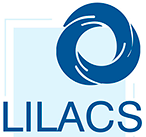Neuropsychiatric symptoms of post-COVID-19 condition in Mexican healthcare personnel.
DOI:
https://doi.org/10.19136/hs.a23n1.5657Abstract
Objective: The aim of the present study was to identify anxiety and depression in health personnel who suffered COVID-19, and to associate them with blood inflammatory markers.
Materials and methods: The design of this study was descriptive and cross-sectional. We evaluated 51 healthcare workers who survived COVID-19 disease with Hamilton scales for anxiety and depression, also we calculated inflammatory markers (systemic immune-inflammation index, SII; monocyte lymphocyte ratio, MLR; platelet lymphocyte ratio, PLR; and neutrophil lymphocyte ratio, NLR) using blood venous samples. This study was carried out from August 2021 to December 2022. Statistical analysis was performed using SPSS v. 26.
Results: Our study included 51 healthcare personnel, females (n=29) and males (n=22). The mean age was 40.54 ± 11.00 years. The most frequent acute symptoms for COVID-19 presented were dysgeusia (n=20), anosmia (n=18), and headache (n=17). The most common comorbidities were overweight (n=24), obesity (n=22), and hypertension (n=11). According to the Hamilton Rating Scale for Anxiety (HARS) and Hamilton Rating Scale for Depression Rating (HRSD) we identify anxiety and depression in 72.5% (n=37) and 51% (n=26) within the health personnel, respectively.
Conclusions: In our study, we observed a high frequency of anxiety and depression in healthcare workers with post COVID-19 condition. However, we did not observe an association between inflammatory markers (NLR, PLR, MLR, and SII) with anxiety and depression in health personnel post-COVID-19. We suggest follow-up assessments in healthcare personnel with post-COVID-19 condition, to evaluate if mixed emotional disorders persist.
Keywords: Anxiety; Depression; Mental disorders; Inflammation; COVID-19.
Downloads
Downloads
Published
Issue
Section
License
Copyright (c) 2023 Horizonte Sanitario

This work is licensed under a Creative Commons Attribution-NonCommercial-ShareAlike 4.0 International License.


































